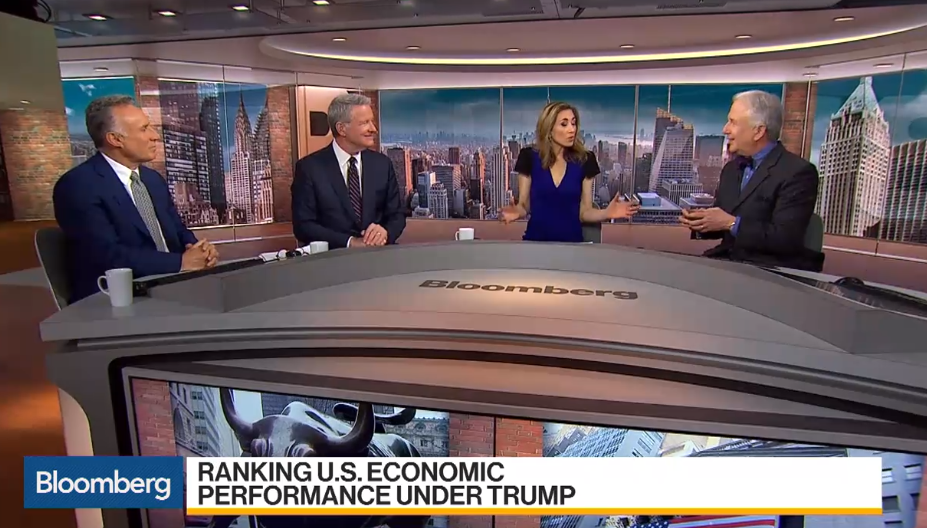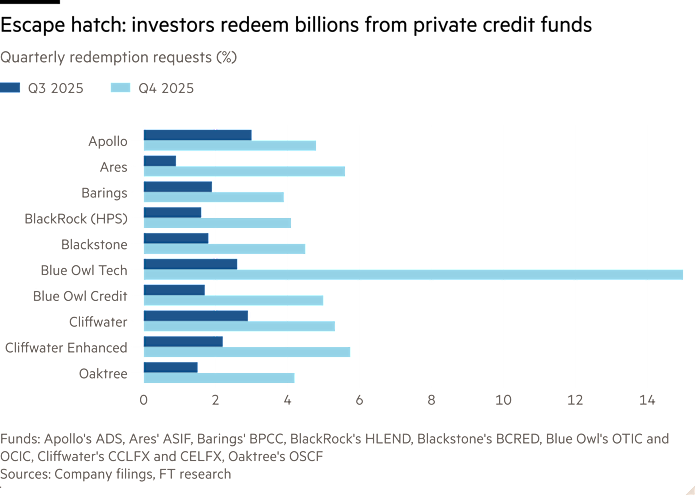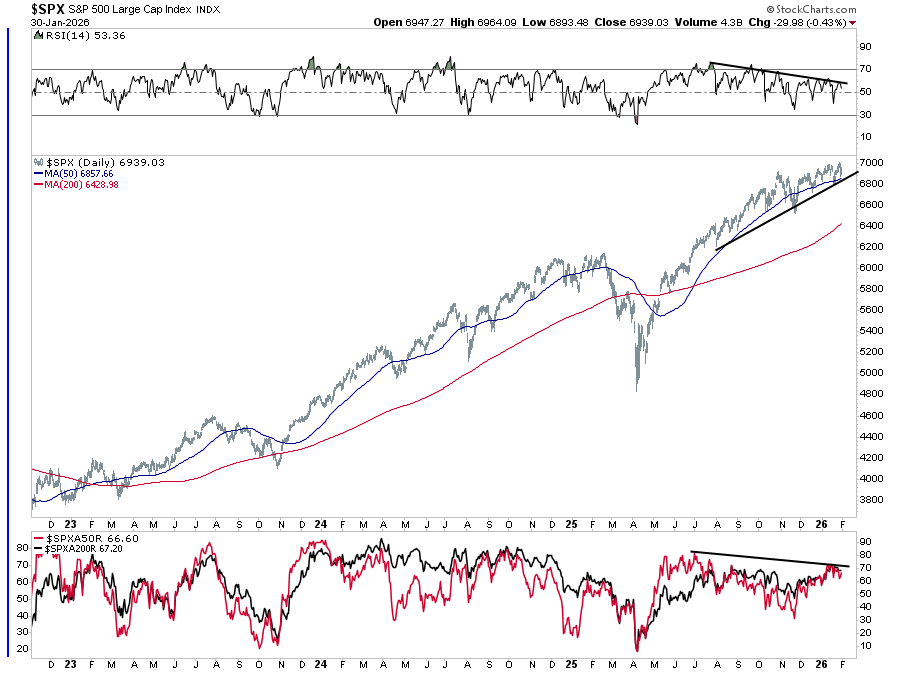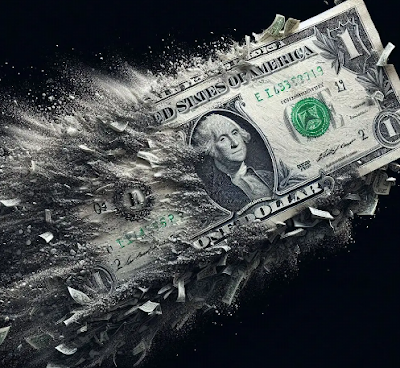| With a jam-packed week for investors, and several high profile earnings reports, first look at Q4 GDP, the resumption of US-China trade talks, the FOMC meeting, and US jobs, it was a good time to be invited on the set of Bloomberg TV, with David Westin and Lisa Abramowicz. The clip here is with Matt Winkler, Editor-in-Chief Emeritus.
Winkler has a piece out today that compares the US economic performance under the current administration with past presidents. The point for Matt is that Trump is the first president in recent times to take credit for the economy (I am not persuaded that this is true) and thinks it is fair to see just how well it has done. He looked at 14 macro-economic indicators, and he unsurprisingly concludes that the economy has not done so particularly well under Trump. The economy did best under Clinton, Winkler tells us. It is not immediately clear how much of the strong economic performance was Clinton’s policies and how much was the good fortune of the peace dividend from the end of the Cold War and the early days of carving out the internet, what we now know as the tech bubble. Matt blames the increase in volatility to Trump’s appointment of Powell. I could not go into it on the air, but this does not seem fair. Recall that when Powell was picked, the narrative was that this was the closest candidate Trump could have picked for the continuity with Yellen. The idea that if Yellen had remained Chair, that the volatility would not have increased and the Fed’s course would have been different, which Winkler implies does not persuade me. |
|
| In was under her leadership that the Fed’s median forecast anticipated four hikes in 2018 that Powell delivered. The strategy to reduce the balance sheet and the incremental increase in the pace through 2018 was laid out by Yellen, and again, implemented by Powell. It was Bernanke and Yellen that distinguish the unwind of the balance sheet (no monetary significance, on autopilot unless the zero-bound was being approached) from the increase in the balance sheet (credit-easing). Still, let’s take Winkler’s argument at face-value and accept his conclusion that after two years, Trump’s economic legacy is not the superlatives the President often uses. So what? Does this tell us anything about where the economy or US dollar is headed? If Winkler’s model says that the economy did better under Jimmy Carter should investors divest of US shares or the dollar? In my work, I emphasize not the historical performance but the relative performance. We will likely learn later this week that the US economy grew around 2.5% in Q4. The eurozone economy probably nearly stagnated, with Italy likely recorded its second consecutive quarter of negative growth. The Japanese economy contracted in Q3 and the recovery in Q4 seems mostly limited to October. The Chinese economy continues to slow, and we know this more through the policy response than the actual numbers themselves. |
What has fueled this, the third major dollar rally since the end of Bretton Woods has been the divergence between the US and nearly the rest of the world. The US acted early and aggressively to curve the downside of the historic credit cycle. It was the first to emerge to the point to that monetary policy can begin being normalized. On top of this, both 2016 presidential candidates promised more fiscal stimulus. The combination tighter monetary policy and looser fiscal policy also helped provide fuel for the dollar.
Many observers have called the end of divergence, but I still see the peak ahead of us. Around the middle of the year, the ECB is likely to provide a new round of long-term loans to help replace the maturing borrowings before they fall afoul of regulations designed to minimize banks’ reliance on short-term funding. Around the middle of the year, as the economic headwinds from the government shutdown and trade die down, the Federal Reserve may deliver another hike.
Full story here Are you the author? Previous post See more for Next postTags: #USD,Cool Video,newsletter




































